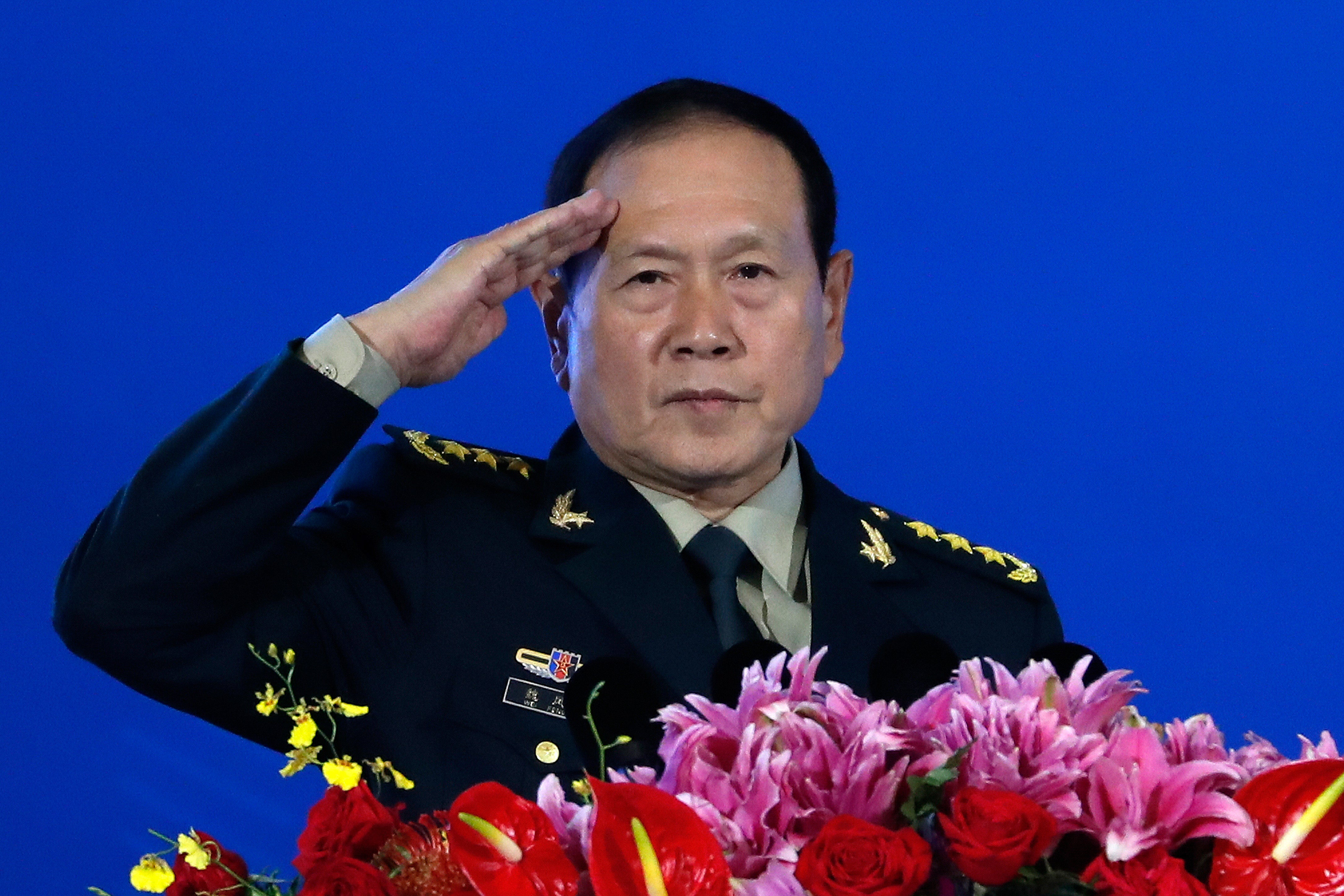China complains over US arms sales to Taiwan
China’s defense minister has complained to his American counterpart about the latest U.S. arms package for Taiwan and warned of a possible conflict over the self—governing island that China claims as its own territory

China's defense minister complained to his American counterpart on Friday about the latest U.S. arms package for Taiwan and warned of a possible conflict over the self—governing island that China claims as its own territory.
Chinese Defense Minister Gen. Wei Fenghe told U.S. Defense Secretary Lloyd Austin in a meeting in Singapore that the sale “seriously undermined China’s sovereignty and security interests,” according to state broadcaster CCTV's military channel.
China “firmly opposes and strongly condemns it,” and the Chinese government and military will “resolutely smash any Taiwan independence plot and resolutely safeguard the reunification of the motherland,” Wei said.
China and Taiwan split during a civil war in 1949 and China threatens to use force to annex the island republic.
Despite their lack of formal diplomatic ties, Washington is Taiwan’s strongest backer and source of arms, and U.S. law requires it to treat threats to the island as matters of “grave concern."
In the latest arms package, the U.S. announced Wednesday the sale of parts for Taiwanese naval ships at an estimated cost of $120 million.
“The proposed sale will contribute to the sustainment of the recipient’s surface vessel fleet, enhancing its ability to meet current and future threats," the State Department said in its announcement of the sale.
Some in Taiwan have been pushing for more big-ticket items, while the U.S. is focused on selling smaller systems it says would better help repel a Chinese attack, leading to a rare area of disagreement between the two sides.
In other comments, Wei warned against “using Taiwan to control China," and laid out a list of conditions the U.S. must meet for relations to improve, including “not interfering in China’s internal affairs or harming China’s interests."
In a further readout of the meeting, Defense Ministry spokesperson Col. Wu Qian quoted Wei as saying China would respond to any move toward formal Taiwan independence by “smashing it even at any price, including war."
Wu also accused “outside powers" of stirring up trouble in the South China Sea, which China claims virtually in its entirety, and said Beijing would “resolutely counter" any efforts to harm China's interests over the issue of Ukraine. China has refused to criticize the Russian invasion and has accused the West and NATO of provoking Moscow.
The combative tone, particularly over Taiwan, is typical of Chinese officials when meeting their U.S. counterparts, reflecting the overall deterioration in bilateral ties. The two leaders met on the sidelines of the Shangri-La Dialogue, a regional security conference held each year in the Southeast Asian city state.
In contrast, Austin emphasized the need to “responsibly manage competition and maintain open lines of communication," according to the Department of Defense.
He said the U.S. remains committed to its longstanding policy on Taiwan and “reaffirmed the importance of peace and stability across the (Taiwan) Strait, opposition to unilateral changes to the status quo, and called on (China) to refrain from further destabilizing actions toward Taiwan," the DOD said.
Taiwan and the South China Sea have been the main points of contention between the two sides, although they have also tangled over China's push to expand its military influence into the Indian Ocean and beyond.
The U.S. and its allies have complained about reckless actions by Chinese pilots in international airspace toward surveillance aircraft and said they have put their flight crews at risk. China has also challenged foreign naval ships at sea, despite bilateral agreements intended to manage such encounters.